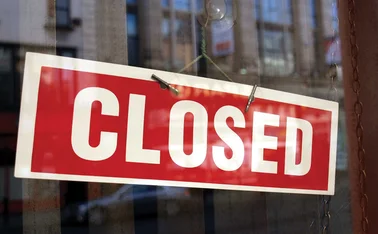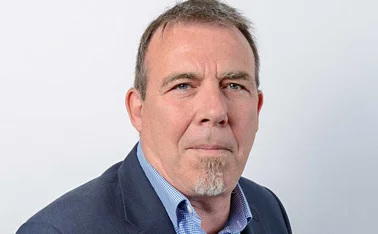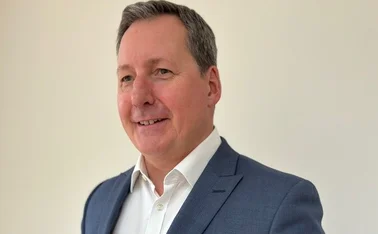
Broking success: Terry Marshell and Mark Stevenson of Anthony Jones Insurance Brokers

Proudly independent: Independence is important to Anthony Jones Insurance Brokers. Terry Marshell and Mark Stevenson explain how mastering new business lines has helped them stay free
▶ What’s the background to Anthony Jones?
Terry: The business was incorporated in 1983. I was involved at that stage, I’ve been with them since 1982. The company was owned by Colin Fellows and he moved on and became MD of a broker called Richards Longstaff. The shares were then purchased by my then partner, David Blackmore, and I in 1985. I’ve been a director ever since.
When David retired 11 years ago I bought his shares. There is another minor shareholder but I have the controlling interest. We’ve been around a long time.
Mark: I joined just over five years ago. I was with Willis and Miller’s but I had known Terry for at least 10 years before joining. He said he wanted to move the business forward and felt I had the skills to enable that to happen.
▶ What does the business specialise in?
Terry: It has changed and developed over time. It has historically been wheels based and we made our name in commercial motor and transport and logistics. That used to be the bulk of our book but it has diminished over time as we’ve diversified the business. It is still about 60% of income and very strategically important but it isn’t as weighted as it used to be.
With Mark’s help we’ve moved into other areas and we are now considered to be a leading vape sector broker and have got heavily involved with intellectual property (IP) insurance which is something Mark brought to the table. We also have a general book with personal lines and some high net worth.
▶ Why develop IP and vaping?
Mark: Vaping came about largely by chance as there was a liquid manufacturer who was seeking to buy insurance and struggling that was referred to us. We found a market in Lloyd’s to provide the requisite cover. We saw it was a new, rapidly growing industry and having found a market to provide product liability cover it was an opportunity to expand very quickly and move into that space.
IP is something I have dealt with previously. There weren’t many players and it is emerging significantly in terms of the products insurers are providing – 15 years ago it was a bog standard legal expenses policy.
What we don’t want to do is compete with all and sundry on easy to place risks where price is the common denominator.
What we don’t want to do is compete with all and sundry on easy to place risks where price is the common denominator
Mark Stevenson
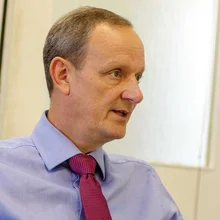
▶ How are business lines broken down?
Terry: Fleet and motor have about 60%, vaping and IP is about 10% but it is growing and we’re developing it further.
▶ Who is your core customer?
Terry: It goes across the piece. We have some international, some UK-wide, smaller businesses with premiums as low as £50. Our biggest client spends about £6m on premium with us.
Mark: Most of our book is SME and a high proportion is in London and the south east. That said, as we move more into vaping and IP that make-up is changing. A lot of e-liquid manufacturers are in the north and IP is widespread.
▶ Have you ever thought about acquisitions?
Mark: We made a very small acquisition just after I joined, Cutbill King, based in Essex and largely a one-man-band who wanted to retire. However, he continued working for us for about four years. We have looked at, and continue to explore, other small sized similar businesses perhaps looking to buy from someone who wants to retire but wants their customers to continue to be looked after with the personal touch. It’s all about being relationship driven and the vendor wouldn’t be looking to maximise profits.
▶ Do you get approached by consolidators?
Terry: All the time. Constantly.
Mark: But there is no interest from us. Nor in joining a network.
▶ Why aren’t you interested?
Mark: For a broker that wants to be independent it is an opportunity to remain free. When consolidators make acquisitions they become internally focused rather than externally, so clients aren’t being looked after. Staff become unsettled which also impacts client service. It gives us recruitment opportunities and long may it continue. The insurers also really value independent brokers across the UK.
Terry: We’re very proud of our independence. Independent brokers are a dying breed at the moment. I don’t think it is fair for me to sell-up and leave everyone. It doesn’t sit comfortably.
▶ What about networks?
Terry: I think the days of the network are diminishing. They are losing members because they are being bought by consolidators. What’s the future in that?
Mark: Plus we’re of a size where we don’t need a network. I can see the rationale for very small brokers who struggle with agency and commission levels and need client support. We are not in that position.
▶ Who are your main insurer partners?
Terry: Zurich, Aviva, NIG, Amlin, Lloyd’s. I suppose they are our key partners because our ‘journey’ over the years has matched with them in terms of appetite for business and building relationships with key people.
Independent brokers are a dying breed at the moment. I don’t think it is fair for me to sell-up and leave everyone
Terry Marshell
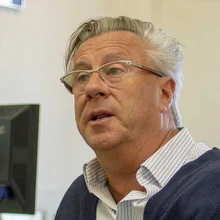
▶ What do you think of the unrated markets and MGAs?
Mark: Do we use unrated? Yes, but we are extremely limited and with countless health warnings to the client even before we get a quote. If the client wants to go down that route we will get a signed disclaimer. We struggle to recommend them.
Terry: They can behave through MGA partners in an unethical way, but we won’t name names. But a lot of transport businesses are driven by price and it doesn’t matter what you say.
▶ Did you pick up business when Alpha collapsed?
Terry: Not a huge amount but we got three fleets over time.
▶ Do you have schemes?
Terry: The e-cigarette products for manufacturing and retail are schemes and exclusive to us but we don’t have the pen.
▶ How do you feel about broker regulation?
Terry: The FCA is like a sledgehammer cracking a nut at the moment.
Mark: There is always new regulation. It’s a significant cost to any business in terms of time, effort and adherence. In the UK we adhere to EU regulations far and beyond how our EU colleagues do. But regulation is here to stay so we have to get on with it and do our best.
▶ How do you want to develop the business?
Terry: Three years ago Mark and I decided we needed to expand to survive as an independent.
You have to grow or you become insignificant. What represented significant income to an insurer has changed as a result of the rise of the consolidators. We wanted to double in size. We’re in year three and about three quarters of the way there, so it is on track.
Mark: We’re trying to make one or two deals over the next three years but our growth plans aren’t dependent on those acquisitions and we’re geared to organic growth through our specialisms.
Only users who have a paid subscription or are part of a corporate subscription are able to print or copy content.
To access these options, along with all other subscription benefits, please contact info@insuranceage.co.uk.
You are currently unable to print this content. Please contact info@insuranceage.co.uk to find out more.
You are currently unable to copy this content. Please contact info@insuranceage.co.uk to find out more.
Copyright Infopro Digital Limited. All rights reserved.
As outlined in our terms and conditions, https://www.infopro-digital.com/terms-and-conditions/subscriptions/ (point 2.4), printing is limited to a single copy.
If you would like to purchase additional rights please email info@insuranceage.co.uk
Copyright Infopro Digital Limited. All rights reserved.
You may share this content using our article tools. As outlined in our terms and conditions, https://www.infopro-digital.com/terms-and-conditions/subscriptions/ (clause 2.4), an Authorised User may only make one copy of the materials for their own personal use. You must also comply with the restrictions in clause 2.5.
If you would like to purchase additional rights please email info@insuranceage.co.uk

